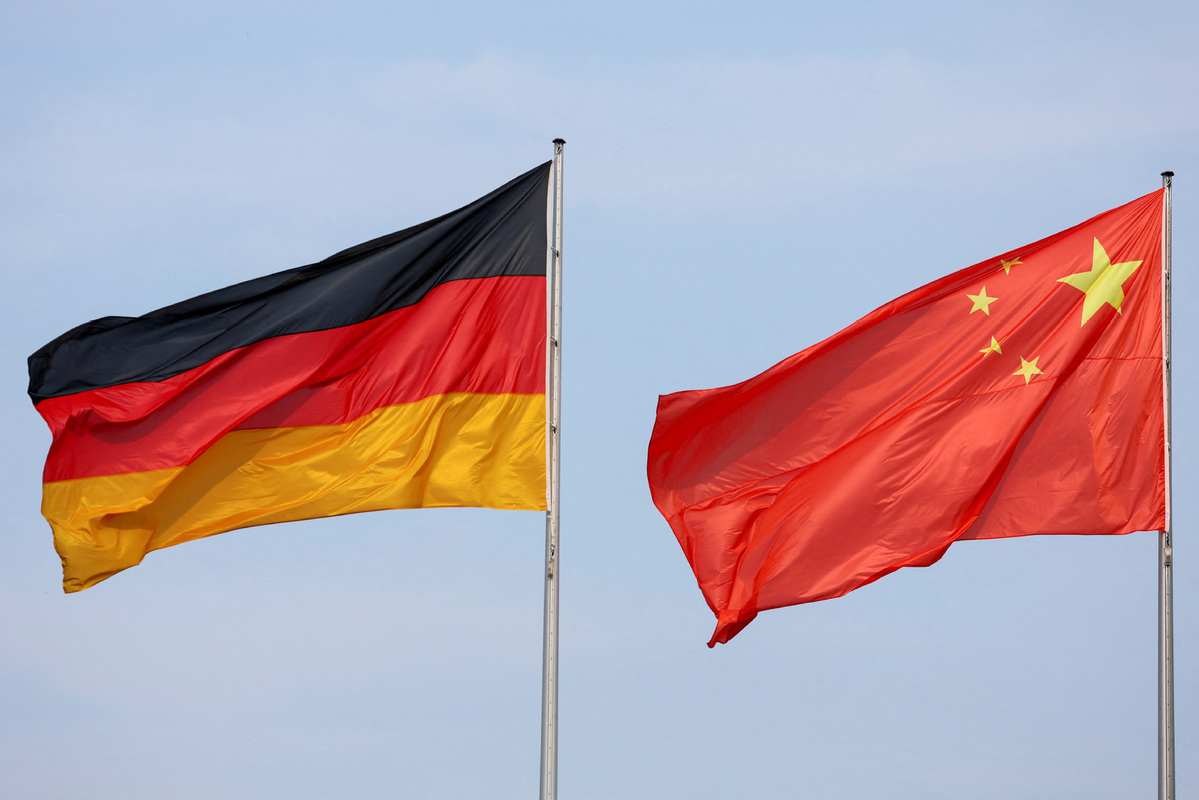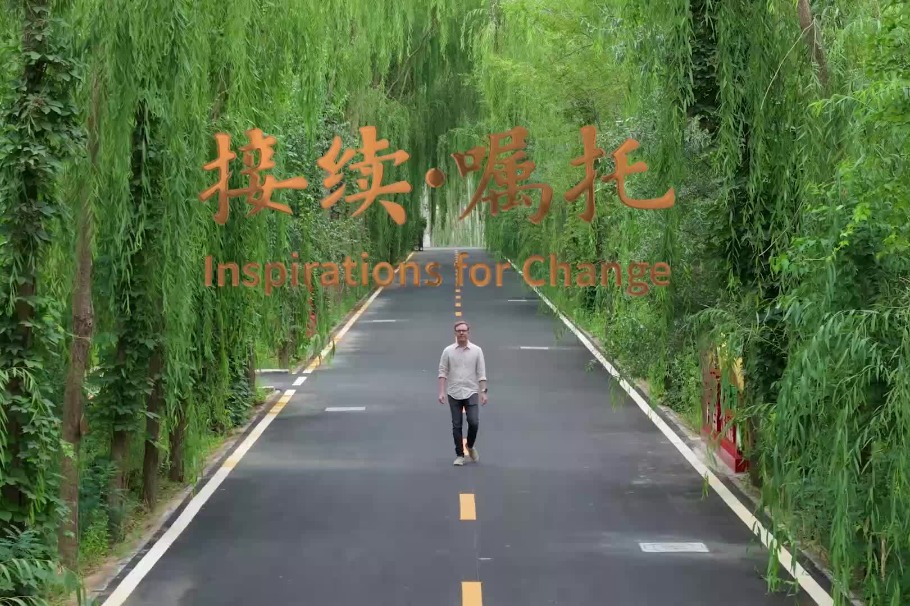The diverse agenda of Scholz's visit to China


German Chancellor Olaf Scholz's visit to China is expected to strengthen economic and trade relations between the two sides, because apart from several senior federal ministers, a large business delegation is also accompanying the German chancellor.
This is Scholz's second visit to the country. His first visit was in November 2022. The Chinese leaders have reiterated that as responsible major countries, both China and Germany should not only bolster bilateral relations and set examples of win-win cooperation, but also safeguard the world order and uphold multilateralism while working together to address global challenges.
Scholz's visit comes in the wake of what many perceive as improving Sino-US relations, and normal working relations between China and the European Union. The visit also comes at a time when the achievements of China are becoming increasingly prominent.
In this context, Violeta Bulc, former EU commissioner for transport, working with the Europe-Asia Center in Brussels, recalled the impressions of her recent visit to China, by saying that the cities and the countryside are clean, vehicles in the cities are all electric, street food, restaurant food is excellent, affordable, available everywhere, infrastructure is growing as we speak and it is modern and over-designed.
She also said that China is gaining international influence via trade, lobbying, yet always strengthening its internal market first, sharing prosperity with the masses, while stressing the peaceful nature of China, which prefers using negotiations and soft power to resolve differences.
Another European, Norwegian diplomat Erik Solheim, recently said that China invested $890 billion in clean energy in 2023, which was as much as the combined investment of the rest of the world in fossil fuels. It's the same as the total economy of Turkiye or Switzerland. Green investment was the main driver of economic growth in China in 2023.
Scholz's visit is important also because the two sides discussed the Ukraine crisis to find a way to help end the Russia-Ukraine conflict. In fact, Ukraine is seeking China's support and has invited representatives from the country to a global meeting in Switzerland, possibly in June, to discuss a peace formula.
Also, French Foreign Minister Stephane Sejourne recently said France expects China to play a role in ending the conflict.
But more than anything else, the Chinese and German sides focused on economic and business relations during their meetings. That the business leaders accompanying Scholz on the trip include Roland Busch, chief executive of Siemens, and Ola Kaellenius, CEO of Mercedes-Benz, and Oliver Zipse, leader of the BMW Group, shows Germany is keen on deepening economic ties with China.
This is understandable because China remains extremely important for German industries, especially carmakers, which operate several local joint ventures with Chinese partners in what is the world's biggest auto market. Accordingly, German direct investment in China rose to a record 11.9 billion euros ($12.7 billion) in 2023, showing that German enterprises and investors continue to plough money into a country that Germany calls a "systemic rival".
Explaining the record increase in German direct investment, Chinese scholars insisted that German investors and businesses do not want to miss the series of opening-up measures and favorable policies that China has taken of late.
Despite the EU launching an anti-subsidy probe into electric vehicles (EVs) from China, Beijing and Berlin should strengthen coordination on the issue, as the two countries have already forged a "symbiotic relationship" in the EV industry chain.
However, Chinese scholars said the German economy is in serious trouble because of the outflow of industries and capital, and the Scholz government needs to halt this outflow to dispel opposition attacks.
The auto industry is a pillar of the German economy, and losing the Chinese market would be disastrous for it. Germany lags in new manufacturing areas, especially in digital and green restructuring and upgrading, which makes its cooperation with China crucial.
On the other hand, the foreign trade office of the German Chamber of Industry and Commerce said the United States is set to overtake China as the top trading partner of Germany by 2025 in view of the continuing growth in German exports to the US.
So quite expectedly, the focus of the talks between the Chinese and German sides should be on creating opportunities for bolstering trade, given the less-polarized global attitude toward China.
The author is a former official of the European Commission. The views don't necessarily represent those of China Daily.
If you have a specific expertise, or would like to share your thought about our stories, then send us your writings at opinion@chinadaily.com.cn, and comment@chinadaily.com.cn.
































